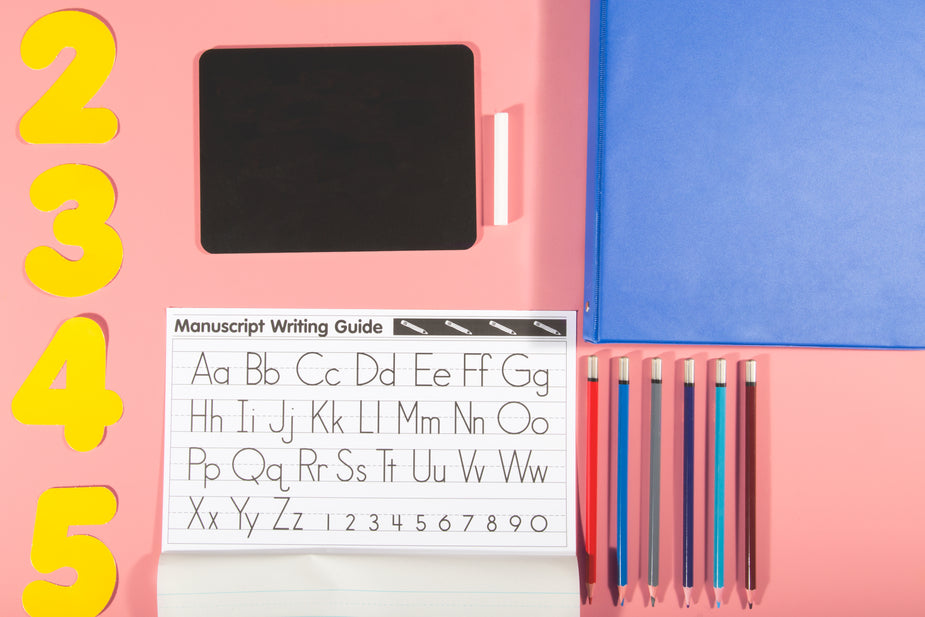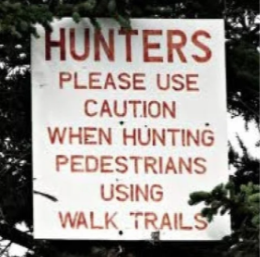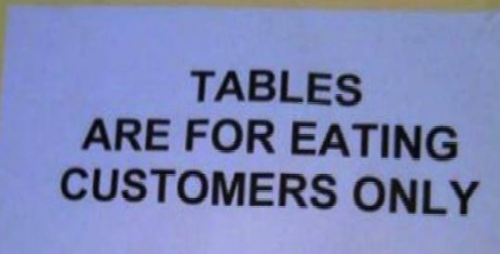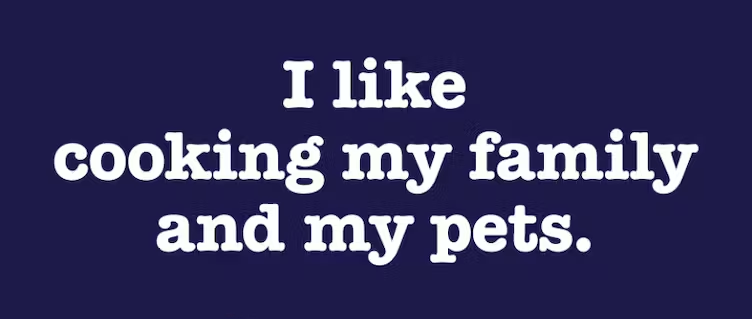January 13th, 2024 – Funny Grammar And Punctuation Mistakes In The Wild

In the world of scopistry, editing, and proofreading, you must follow several rules. Some of the most important rules to keep in mind are grammar and punctuation rules. I find grammar and punctuation to be a puzzle. When you solve the puzzle, the whole picture of prosody, intonation, and intent come together.
During my life, I have seen some interesting grammar and punctuation mistakes. These mistakes can have various unintended consequences such as changing the meaning of an entire sentence or even changing the reader’s perception of your intelligence. Best case scenario, they’re good for a laugh. Worst case scenario, you’re trying to explain to your friends and family why you suggested eating your grandmother rather than eating with her.
Today, we will look at some examples of funny grammar and punctuation mistakes in the wild. We’ll look at the way inappropriate punctuation can affect how a reader perceives your message and how we can fix or avoid such mistakes.

Missing Periods
It’s necessary to split up a sentence, especially sentences with multiple parts and conflicting verbs, intentions, or messages. This will avoid dangerous grammar and punctuation mistakes such as the ones below.

HUNTERS PLEASE USE CAUTION WHEN HUNTING PEDESTRIANS USING WALK TRAILS.
I have many questions I may not have had if your sentence had been structured differently. Let’s try something different.
“Hunters, please use caution when hunting. Pedestrians using walk trails.”
Or please, consider more pronouns and verbs.
“Hunters, please use caution when you’re hunting. Pedestrians are using the walk trail.”

Caution – Hot Children 10 And Under Need Adult Supervision
No, no. No, no, no.
“Caution – Hot! Children 10 And Under Need Adult Supervision.”
Or consider rewording altogether.
“Caution – Hot [Food/Surface/Area]. Children Must Be Supervised.

Tables Are For Eating Customers Only
I can see your rap sheet now. How about we try something a little less cannibalistic?
“Tables Are For Eating. Customers Only.”
Some sign companies charge printing fees by the letter. Let’s save you some money and from receiving an arrest warrant.
“Dining Area. Customers Only.”
Periods are essential in drafting good sentences. The period marks the end of a complete thought and the beginning of a new idea. When used incorrectly or not used at all, it can be disastrous for the meaning of your sentence. These are necessary grammar and punctuation mistakes to avoid.

Comma Placement
One grammar and punctuation mistake I often see is the lack of commas. If you are writing a list that includes verbs and nouns, you need to be aware of not only the position of those verbs but also the placement of your commas.

I like cooking my family and my pets.
Okay, Hannibal. Let’s try again.
“I like cooking, my family, and my pets.”
Or better still,
“I like spending time with my family and pets, and cooking.”

If you’re trying to express a message or idea to a person or group of people, they are not included in your object.
Don’t wear black people
Great advice. I doubt that was your intended meaning, however. So, let’s try again.
“Don’t wear black, people.”
Better yet,
“Don’t wear black!”
You’re trying to be dramatic, maybe slightly exasperated. You’re not trying to commit felonies.

Let’s Eat Grandma!
Grammar and punctuation mistakes are deadly. Very interesting how oftentimes without a comma, you may be committing a crime.
“Let’s eat, Grandma!“
“Hey Grandma, let’s eat!”
Both are better, neither of them is a crime.
The comma is a necessary and versatile part of a complete sentence. They separate phrases. They can be used to replace missing conjunctions. A comma can set off quotes or names. There are more comma rules than can be listed in just a few sentences. When used wisely, they can complete a sentence. When used inappropriately, you’re trying to kill Grandma.

Unnecessary Punctuation
English is a prosodic language. I used to teach my students that one sentence can have different meanings based on which word you emphasize when speaking. I like the example, “I never said she stole my money.” Seven different words, seven different meanings.
When writing, you can’t hear intonation or prosody. But if you add in unnecessary punctuation, you can achieve the same devastating effect.

EMPLOYEE MUST “WASH HANDS”
What does “wash hands” mean to you, signmaker? Is it different than what it means to me? What have you taught your employees? Why is only one employee required to wash their hands? Should I be concerned?
IF IT “DOESN’T” BELONG ON THE FLOOR “PICK IT UP”
Is this code? Are you trying to do one of those “wink-wink-nudge-nudge” things? What is happening? What are the rules here? I am confused!
FLOOR! MAINTENANCE IN PROGRESS! WET! FLOOR!
Are you yelling at me or at the floor? Are you telling the floor to get wet? What message are you trying to send, signmaker? I still don’t know if the floor is wet or if you want me to wet the floor myself. I do understand that you are very angry about whatever your message is, though.
Punctuation is necessary overall, there’s no denying that. Most spoken languages – English included – rely on prosody and intonation to achieve the meaning of their sentence. When you’re writing rather than speaking, your meaning must be discerned in other ways. Adding random quotation marks and exclamation points will only confuse your audience and have them draw conclusions you may not have intended.

How Do We Avoid These Mistakes?
Practice. Study. Proofread.
The English language is complicated; it’s considered one of the weirdest languages in history. The rules evolve with the language and therefore it takes constant study and learning to stay updated. Learn the rules you need to follow, understand where they come from, and understand why we follow them. Don’t forget to proofread before you publish.
If you’re not into all that studying, a great tip is to read your sentence out loud. You will take on natural prosody when you read through it. This will give you an idea of where a period or comma may come in handy. If it starts to sound like you’re trying to suggest eating Grandma or hunting pedestrians, maybe change that.
—-
I hope you enjoyed reading some of these funny grammar and punctuation mistakes. If you did, make sure to leave a comment down below and come back for a new post on the Next Step Scopist blog!
—-
Last Post: How To Become A Successful Scopist In 2024
Next Post: Free Learning Resources To Build Your Online Business

Leave a Reply